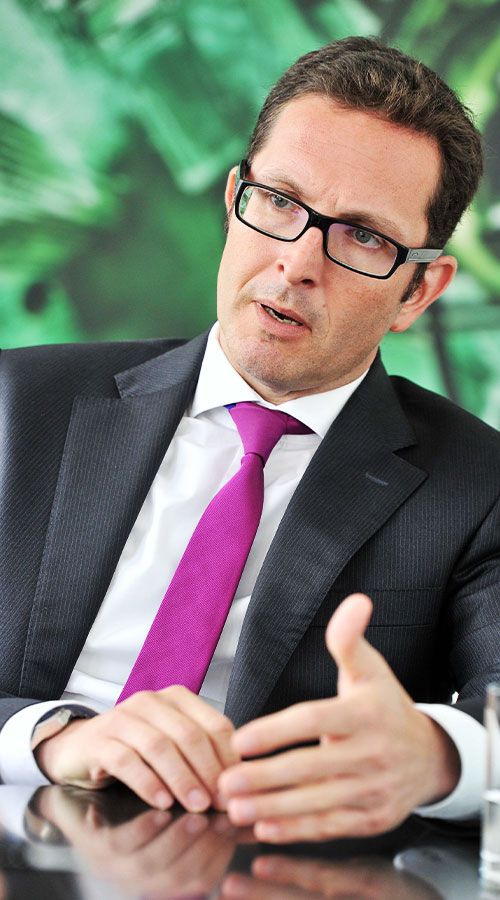“If you want renewables, you can’t leave gas out of the equation”


- CEO Mario Mehren calls for resolute action from policymakers to ensure a successful energy transition
- Phasing out nuclear power and coal means gas is still necessary
- The energy future needs two pillars: renewables and hydrogen
The dream of net zero needs gas: Just a few days before the German elections, Wintershall Dea’s CEO Mario Mehren urges policymakers in a byline article published throughout Europe to make natural gas a core component of the energy transition. “In particular last year, we in Europe were able to demonstrate that gas reduces emissions, cuts costs and secures our energy supply.” Studies prove that a cleaner energy supply is possible: According to Agora Energiewende in its study “The European Power Sector in 2020. Up-to-Date Analysis of the Electricity Transition”, the decline in coal-fired power generation in Europe reduced greenhouse gas emissions by around 320 million tonnes a year compared to 2015 – or about seven percent of Europe’s CO2 emissions in 2020. “The decline in coal-fired power generation is good news for the climate,” says Mehren.
Because energy consumption continues to rise and renewables are not always a reliable source for weather-related reasons, this wane in generation using coal was enabled by a constant supply of power from natural gas – which was able to compensate for almost 50 percent of the reduction in coal-based energy production. “If it had not been for gas, the lights would have gone out at many companies. We also need gas in the near future if we want to make net zero a reality. The goal must be a secure energy supply with two pillars: gases such as hydrogen and electricity from renewables. We in Germany and Europe must continue vigorously on this path.”
If you want renewables, you can’t leave gas out of the equation
In view of the elections and the fact that capacities from the six remaining reactors will drop rapidly in the coming years due to the phase-out of nuclear energy, policymakers now have to act resolutely and ensure the success of the energy transition in the short and medium term by adopting a technology-neutral strategy. “We need to do one thing, without abandoning the other. Nuclear power phase-out will mean that a further 50 gigawatts will go off stream next year. We have to expand renewables unswervingly, but we will still need electricity and heat from natural gas. If you want renewables, you can’t leave gas out of the equation,” is how Mario Mehren puts it in a nutshell. Otherwise, Germany’s supply security, its position as an industrial location, prosperity and jobs would be put in jeopardy.
You can find the opinion piece here: "The dream of net zero needs gas". This article was originally published on Euractiv.
About Wintershall Dea
Wintershall Dea is Europe’s leading independent natural gas and oil company with more than 120 years of experience as an operator and project partner along the entire E&P value chain. The company with German roots and headquarters in Kassel and Hamburg explores for and produces gas and oil in 13 countries worldwide in an efficient and responsible manner. With activities in Europe, Russia, Latin America and the MENA region (Middle East & North Africa), Wintershall Dea has a global upstream portfolio and, with its participation in natural gas transport, is also active in the midstream business. More in our Annual Report.
As a European gas and oil company, we support the EU's 2050 carbon neutrality target. As our contribution we have set ourselves ambitious targets: We want to be net zero across our entire upstream operations – both operated and non-operated – by 2030. This includes Scope 1 (direct) and Scope 2 (indirect) greenhouse gas emissions on an equity share basis. In addition Wintershall Dea will bring methane emissions intensity below 0.1 per cent by 2025 and maintain zero routine flaring of associated gas in its operations. The climate goals are to be achieved through portfolio optimization, emissions reduction through more energy efficiency, investments in nature-based compensation solutions and in future technologies such as hydrogen and CCS. You can find more about this in our Sustainability Report.
Wintershall Dea was formed from the merger of Wintershall Holding GmbH and DEA Deutsche Erdoel AG, in 2019. Today, the company employs around 2,500 people worldwide from over 60 nations.

